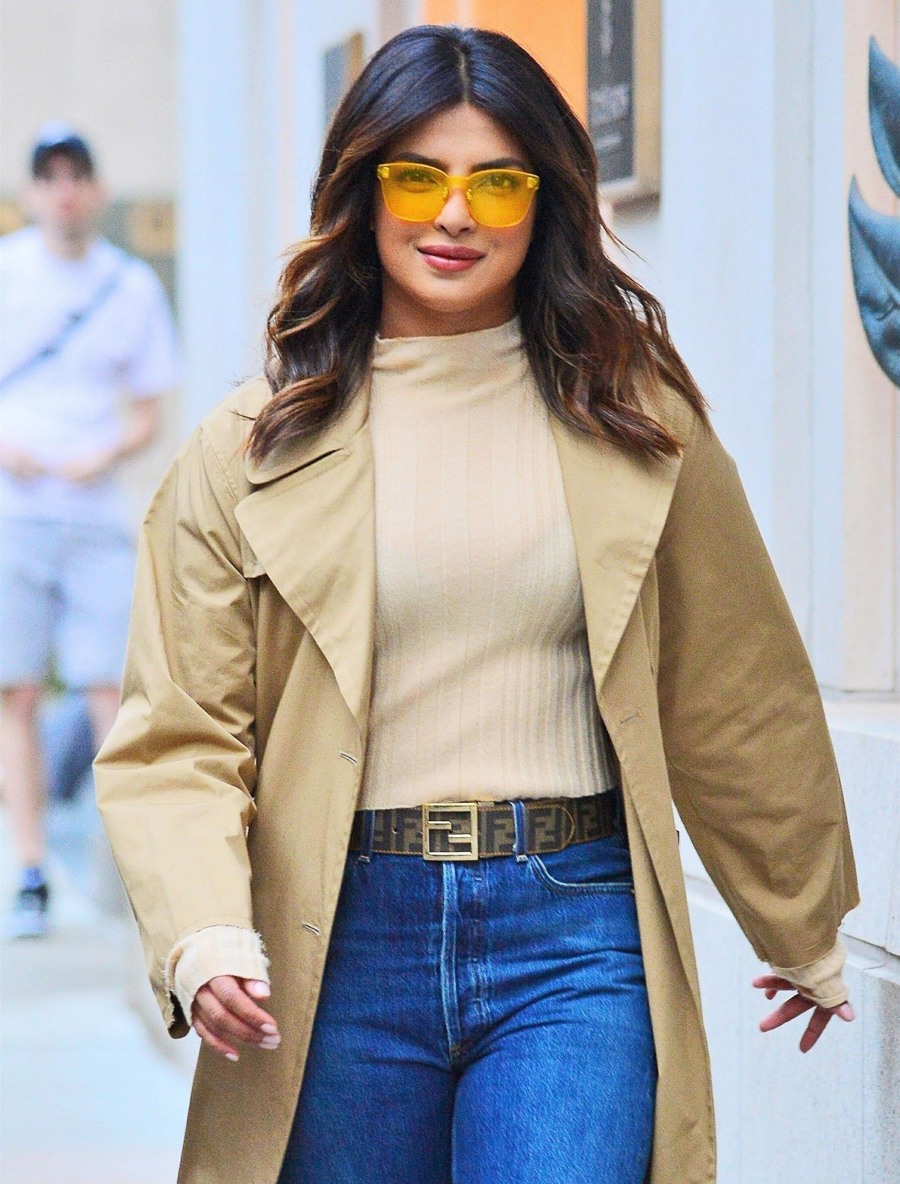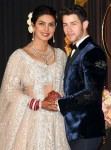As an Indian-American woman, it’s been fascinating to see how the global conversation on racism and Black Lives Matter has been extended to conversations about colorism and the colonialist legacy within Asia. In no way am I saying that BLM conversations are the same, or that colorism within an Asian society is the same as systemic and institutional racism on a national or global scale. But it’s been an interesting conversation running to the side of the larger conversation, and there have been calls for various companies to stop selling “skin lightening” face creams, and for (specifically) Bollywood actors and Indian models and celebrities to stop promoting those skin-lightening creams. Well, now we have the first big change on a corporate level: Unilever, one of the biggest consumer goods companies in the world, is making a change. From Unilever’s press release:
Unilever announced today the next step in the evolution of its skin care portfolio to a more inclusive vision of beauty – which includes the removal of the words ‘fair/fairness’, ‘white/whitening’, and ‘light/lightening’ from its products’ packs and communication. As part of this decision, the Fair & Lovely brand name will be changed in the next few months.
Sunny Jain, President Beauty & Personal Care, explains, “We are fully committed to having a global portfolio of skin care brands that is inclusive and cares for all skin tones, celebrating greater diversity of beauty. We recognise that the use of the words ‘fair’, ‘white’ and ‘light’ suggest a singular ideal of beauty that we don’t think is right, and we want to address this. As we’re evolving the way that we communicate the skin benefits of our products that deliver radiant and even tone skin, it’s also important to change the language we use.”
“We have been working on the evolution of our Fair & Lovely brand, which is sold across Asia, progressively moving to a more inclusive vision of beauty that celebrates skin glow. We have changed the advertising, communication and – more recently – the packaging in South Asia, and we think it’s important that we now share the next step that we have been working on: changing the brand name. We will also continue to evolve our advertising, to feature women of different skin tones, representative of the variety of beauty across India and other countries. We want Fair & Lovely to become a brand that celebrates glowing and radiant skin, regardless of skin tone,” adds Jain.
Unilever also says that they’ve basically known that this is a huge problem for years, and they’ve been phasing out a lot of their problematic colorism branding quietly since 2014, but now is the moment for even bigger changes. They also claim that the Fair & Lovely brand “has never been, and is not, a skin bleaching product.” Except that’s how the brand was marketed for years. But yes, so much of the skincare and cosmetics industry in India (and other countries) is marketed as “this will make your skin ‘glow’ and ‘glow’ means ‘lighten’ remember?”
While Priyanka Chopra never modeled for Fair & Lovely, she has done advertising within India for somewhat similar “glow” skincare products.
List of Indian actors who are speaking on BLM and their fairness cream ads, a thread : pic.twitter.com/yUeRNLch6U
— anti pigeon (@aluminiummaiden) May 31, 2020
Here's your rac*st Pri selling skin whitening creams in India pic.twitter.com/O5P7cwqIUt
— Ali Baloch ✌🏿✌🏾✌🏻 (@maXes_MB) June 3, 2020
Look at these f–ked up Fair & Lovely ads:
Photos courtesy of Backgrid.

















If society puts a premium on lighter skin tone, changing the name of the cream will not help… It will still be bought for its supposed bleaching properties. But it’s good that at least the conversation about the colonial nature of the relative value of skin tones is starting to gain steam.
I can’t help laughing at the “glow” part, though… I’m a very pale white girl and I’ve got the “healthy glow” of someone in the last stages of consumption 😉
Agree about the culture. My mom is “fair” and my dad is dark and everytime I went to India my relatives would shake their heads and say how sad it was that I wasn’t fair like my mom.
Jaya, I feel your pain. But now, you KNOW its utter bullshit. Being brown is my happy place. My dad is very dark, he’s south indian, mum is Japanese, so white as. My sister got my mums color (or lack of) and my brother and I are more of a molasses! Haha. Growing up in India was certainly something, always being compared to my sister who was fair and hence considered “beautiful”…so I had to prove myself with more than the skin deep. In the end, I believe that was the best path for me, because I grew up valuing myself for more than just my skin color (read: beauty or lack there of) and to know I was more than just my looks. Still, I sure as hell wished I was fair when I was young lol.
@Esme, My thoughts exactly! Changing the marketing doesn’t matter as much if you keep the product, which implies that darker skin is inherently less desirable.
But if people want a product that lightens dark spots and gives a more even, lighter skin tone – why not sell it? I have fair skin but I don’t like my darker sun spots.
That’s true, Esme. I’m wondering, though, if they’re removing the right word/s. I think they should eliminate the word “lovely”, or at least not pair it with fair, light/er, pale, whiter etc., because it strongly implies and suggests that to be lovely, one needs to be lighter or paler. I *apparently* have rather lighter skin than one expects, coming from Italy. What does that even mean? Are all Italians meant to be the sane Pantone shade of West-Med skin? Our parents weren’t what some might call swarthy, and we five kids pretty much followed the genetic rules, and were blessed with great skin, thanks mamma e papá. Except for big sister. She’s a ginger, with the palest skin and freckles. I love her skin. I love my skin. I love Mr Next Door’s Maori skin, and our canteen manager’s shiny and smooth Indigenous Tharawal skin. What I don’t love is anyone implying that *lighter is lovelier*. It’s a cheap, vile lie.
@Annakist, I’m also Italian! Ciao! And also way paler than average here, and I constantly get asked where I’m from 😀 (and shopping for the right foundation shade is not super easy here, I usually buy it in the US, where they stock all the rose white shades of pale) – but it has never been an actual drawback.
I don’t think that pale is lovelier, but a lot of the world thinks it is, in many parts of the world a paler skin gives you some “beauty points”, Unilever probably makes a lot of money selling the totally-not-bleaching “glow” cream, and women in particular are under pressure to be pretty, groomed and “fair”. (I’m already “fair”, so it’s a pressure I don’t feel, but I understand enough of the pressure to be thin and groomed that I can try and understand how this affects others)
I do not entirely trust a corporation to avoid selling a moneymaker… I think they’re just going for plausible deniability here.
But as th OP says, at least the conversation is happening, and it’s happening often and strongly enough that even big corporations have to take notice. Maybe society will slowly change.
It IS society’s fault. The women who feel compelled to lighten their skin do so because of societal pressure. It is similar to (asian) women having surgery to create a double eye-lid, or other women who have a nose job to thin/reduce their “ethic” noses, or who straighten their hair, etc., because society expects them to look a certain way. Do they want a chance at a job, or to get a raise, or to be considered attractive? Then they have to go through these steps. Do not blame the women (or even the products that help women achieve those looks), blame ourselves because we are part of the society that creates that pressure on them.
I visited the Philippines 15 years ago and still remember a commercial for skin lightening cream that showed a fairly light complexioned woman having a much darker baby and giving her husband this unabashed look like “you caught me”! It was pretty wild.
It’s really sad, isn’t it? It was probably done in a jokey way to advertise the product, but the message being sent is “This is how you have to look to get a man.” And there is sometimes this idea that a woman are supposed to be at least as light as, or lighter than, her man.
So Unilever is going to keep selling this stuff and just use more subtle language to tell people they should lighten their skin? Good for them? Of course they have known for years that it is problematic- people have talked about this for years.
Ugh, I just like Priyanka Chopra less and less after the years
I keep waiting for us to have a colorism conversation here in America. European beauty standards have impacted the lives of women of color in America. Lightening creams have always been sold in the states.
This whole skin lightening thing is a a huge cultural issue on Asia and idk how fair (damnit pun not intended) it is to blame Priyanka for all of it…
Yeah it’s not just her, a lot of the biggest Bollywood stars have done ads for lightening products. Additionally a lot of Bollywood stars are very light skinned anyway, and does not at all reflect the very wide range of skin tones found in Indian society.
It’s a thing in Middle Eastern culture, also. My grandmother is Syrian and would go on and on about how I was white like the moon. It was supposed to be a huge complement.
I’ve been reading this blog for years now but I seldom comment. Since you mentioned my country, I can’t help but put my two cents in 🙂
I am from the Philippines and so many people back home are obsessed with skin whitening products. We were a colony of Spain for 333 years and having brown skin was used against us by our colonizer (e.g. when you have fair skin, it is interpreted that you belong to a higher social class and don’t need to work under the sun; when you have a darker complexion, it means that you worked daily under the heat of the sun, implicating that you’re poor and an “Indio” which was like a slur in those days). This colonial legacy lives on and you can see so many billboards along our main thoroughfares promoting skin whitening products from soap, lotion, glutathione pills, and even IV drips. It’s insane! Most of our acclaimed actresses and beauty queens are also mixed race with strong Eurasian features so no wonder so many of my compatriots have skin insecurities.
This is so entrenched in our psyche that we think it’s normal and even my mom used to tell me when I was younger that she’s glad that I got my dad’s complexion instead of hers (I’m not mixed race but for some reason, fair skin run on my dad’s side of the family). I’m still unlearning so much about the issue of colourism in my country and it’s interesting to see that more and more Filipinas are speaking out about this issue. But only time will tell if aisles of whitening products will dwindle from groceries in the future which I hope will happen.
Thanks for sharing this insight into culture in the Philippines and how (yet again) white people have ingrained white as the ideal, It’s going to take a lot of dismantle all of this but having the conversations and realising what we’ve accepted without realising it has got to be a critical part of that. If enough people stop buying them the products will surely go eventually.
Yes it is interesting in different cultures the different castes and so many times the higher ones are the lighter ones. I agree that much of it comes from colonization (India/Britain) or in Japan it is associated with the leisure (rich) class as you don’t have to be in the sun working.
Hope this can help cause a change in outlooks worldwide
What’s missing is Priyanka has apologized years ago for participating in these ads and is one of the few to have done so. She has talked about how her own extended family would criticize her for being too dark. She was also had darker skin than most Bollywood actresses, which negatively impacted people’s perception. Even today comments will consistently will be left on Indian media that Priyanka looks too dark or too black. Hassan Minhaj did that piece on colorism, but telling didn’t include any of the male actors that participate in these adds. That’s another side of colorism that greater expectations and demands are placed on women than men.
You and Crooksandnannies both made good points. This brand is making the right choice. This is peogress. Colorism is definitely a problem in South Asian and other communities of color, and skin-bleaching is something that’s happened in my family. I still get nervous though about people- especially white people- weaponize the topic of skin- lightening creams to suit their misogynoir needs.
*Progress, LOL. I really shouldn’t type and walk.
Good points @Sam, and Priyanka is one of the huge Bollywood stars who has darker skin tone, and I don’t doubt at all she received grief over it.
Just because of the reference of Priyanka Chopra modeling—has anyone seen photos of her with her original nose? She was STUNNING. She’s a beautiful woman now but her old nose was lovely and really fit her face well. I think she’s an example of someone whose face got “worse” after plastic surgery, and it makes me sad.
I just hope people who want to continue using these creams aren’t shamed. The social pressure is real, and just because a product’s marketing and name is changing doesn’t mean the whole world will at once. If people use these products because they feel they need to, that’s awful, but i don’t think anyone should judge them.
I remember being in India a decade ago and reading the ads for marriage partners. They wrote “fair” in many ads (of both people who were “fair” and people searching for “fair” people). Really eye opening.
It wasn’t just in India. They have those same matrimonial ads in Canada (or they used to) and I remember reading how ridiculous the ads were. “Parents looking for a well educated, fair, and homely girl for their son”. Ridiculous. Shaddi.com used to have a section where you would have to put your skin color in your profile. I’m not sure they still do that now or not but it was crazy. I remember seeing the term “wheatish” and wondering what the f*ck that meant. I hope we are smarter now but as an Indian I can tell you Light skin is all most of the culture cares about (no matter where you live).
My sister in law has worked in Sephora for years and recently mentioned how south Asian women would come in to get matched for foundation and would often refuse the actual match and go with lighter shades. She said newer employees would get frustrated and not understand why the customers didn’t want the shade that matched their skin and she would have to explain to them it was a cultural thing that they wanted lighter skin. It’s so sad what colonialism and white supremacy has done these places. I hope we are saying a global shift in beauty and acceptance.
Real change is to stop selling skin lightening products. All they’re changing is the language that the use so that they sound politically correct. Ugh.
I’m an Afro Latina and I love that they are changing the name. To stop selling these kinds of products all together would really piss me off though.
I want and use these kinds of products. Hyperpigmentation is a thing, and darker skinned people tend to scar easier, but instead of companies investing in safe, effective treatments for hyperpigmentation they give us white/bleach crap that a lot of the time isn’t very safe.
I love my dark skin and never want to whiten it, I do like getting rid of pimple, hair removal scars, etc though. Why can’t companies make good quality products that address our skin issues? 😭 and then the talk of getting rid of skin bleaches because people do use them I’m not so great ways sucks too, because it assumes that black women want to look white (I definitely do not). It reminds me of how people say offensive things like (oh your hair is straight you want to look white/ giving in to a European beauty standard) but then white women can perm their hair to the kinkiest of curls and they are just “experimenting/having fun with their look”. Same with lip injections, white women are rarely accused of trying to look more black, but heaven forbid a black woman dye her hair blonde.
TLDR I hope they invest money in to making, safe effective products that women of color can use to address hyperpigmentation and, for the love of good, yes, please get rid of these crap product names.
This was a great comment ! Also, don’t forget how so many White women love to tan ! No one says sh*t about that though.
Great point. That’s something that can be easily overlooked when this is brought up.
Fair AND LOVELY. Yikes. At leats they’re finally acknowledging how that is all kinds of wrong.
Kaiser, it is indeed interesting to see how the BLM conversation is happening globally and the various forms the conversation is taking. I am not an Indian but a South Asian hindu and I can say that casteism is a huge problem in India and other places (people of so called “lower castes” are facing systemic injustice and are being killed at alarming rates) so there is a sense of solidarity with BLM. But the other conversation is about how high caste Hindus hypocritically support BLM but do not care about casteism issue in their own communities (I think other Asian communities are also having conversations about anti-black racism and colourism in their communities). Additionally, there are many high profile Indians supporting BLM vocally but they have been supporters of PM Modi, who is basically a fascist. Priyanka is one of those hypocrites, and I bet readers here remember Modi attending one of her many weddings, but she is by no means the only Bollywood stars to (vocally) support him.
So yeah it’s been interesting and I can only hope that the global solidarity with BLM continues and we have all of these conversations about race, caste, colourism etc. etc.
Rani…couldn’t agree with you more! SA Hindu here too…and Indians haven’t even BEGUN to address the parallels. Not to mention the actual anti-black racism in India. And yes, Modi is frightening! I pray people come to their senses, but the resistance is nowhere near enough
Yep @Dawnchild, one point I forgot to mention that you did is the anti-black racism in India. There is SO much work to do, it makes my head spin.
And here in the UK where I live, we have Asian members of the right wing Tory government who have shown a high level of disregard for fellow minorities. These people frighten me.
I see that Unilever is going to drop the word “fair” from the name? I hope so. Skin whitening creams also have an enormous market in China.
YIKES! Those ads are truly terrible. I mean, I use some dark spot treatment for melasma, but that is so obviously not what they are going for there. Very saddening, but glad to see this changing (even if they aren’t removing the lovely part!!!). Also a huge culture in Japan/Korea/China for skin lightening.
Sulwe is a great kids book for teaching kids to learn to love darker skin.
Colorism sadly exists among Latinx, Black, and Asian communities.
And while colonialism exacerbated it, the issues predates colonial powers. It goes back to if you were rich, you weren’t working in the fields and thus you weren’t as dark. Being light skin was a status symbol. White people had the same attitude until Coco Chanel made tanning in vogue. Then for white people tanning became a symbol indicating you had leisure time.
I’m part Thai and Thailand wasn’t never colonized, but there are still shelves of whitening products. It always struck me as odd when I was little cause I’m from California where tanning rules.
In other unilever news, the company has halted ads with Facebook for the rest of the year because of hate speech and divisive content on the platform. So props to them.
I worked at a full service beauty wholesale company. The most popular products sold to African beauty supply stores were skin lightning products and hair relaxers. Hair relaxers was #1 sellers with middle eastern suppliers
Do those skin lightening creams actually work though?? I am probably one of the palest/whitest people you will ever meet, a product of a lot of Anglo-Saxon (mostly Irish) genes. I burn within 5 minutes of being out in the sun. So I’ve never looked into the industry of skin-lightening creams but I always wondered if they did what they said they did.
I think they do work when they contain hydroquinone. I’m a Caucasian who lived and worked in Far East many years ago. I saw the commercials and was confused by them. I don’t think it’s a desire to be like Europeans, I think they prized fair skin for many centuries. But really I’m an outsider so this is just speculation.
I also got in the habit of carrying a UV filter umbrella to keep from burning in the sun. The locals used them to keep from tanning.
There’s an idea that if you have a dark tan you are probably a farm worker who gets tanned in the sun. It’s a class thing.
Colourism problem is embedded within cultures. Changing name or even changing product won’t help when women are brainwashed from birth that having a fair complexion gives you better chances in life (which it does in these cultures). Change needs to start within society. Education and equality for all women and men regardless of their colour or background would be a good start. Both women and men need education and “reprogramming” to open their minds.
I find ironic the fact that in western societies whites women are brainwashed with this image of a blond girl with tan skin while in Asian cultures you must have fair skin to fit that ideal image.
I just have to share this ad I came across while on YouTube. It’s an ad for bleaching your private area into a fairer colour, hence earning the love and attention from your man. When I first came across the ad, I found it humorously shocking, but that ceased very quickly once I fast clicked onto the ad’s sinister message. It’s very sad really.
https://www.youtube.com/watch?v=i172liZ8Rk4
Was recently watching a doc on skin lightening in India, and one crazy/sadly unsurprising thing, was that they use a lot of white women for local advertisements – selling them as fair skinned Indian women. So sad.